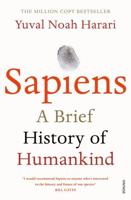Publisher's Synopsis
Manchester and Salford have a special place in the history of the British working class. They lay at the heart of the cotton industry, the spark of the industrial revolution, and as a consequence were among the first places to experience the application of steam power and the factory system to production. As a result, the Manchester-Salford conurbation was the first to see a fully-formed industrial working class. Whilst industrialization went through its heroic phase, the two cities seemed to be blazing a trail, not only for the rest of the country, but for the world. During the first half of the 19th century, social observers came from across Europe to see what they supposed to be their future. Manchester was, in Asa Briggs's influential phrase, the "shock city of the age". The city demonstrated the ability of science to control nature: this was why, in 1843, Benjamin Disraeli described Manchester as the "modern Athens". However, as Alexis de Tocqueville had noted eight years earlier, there was another side to increasing productivity -;"Here humanity attains its most complete development and its most brutish; here civilization makes its miracles, and civilized man is turned back almost into a savage".;The main and, to many middle-class commentators, the most frightening, consequence of novel production methods was a new form of social relations. If industrialization created two nations in Britain, they were first detected in Manchester; if the cash nexus was the only bond which connected the rich and the poor, this was most apparent there also.;Therefore, whereas Manchester was admired for its technical and organizational achievements in cotton production, it was also feared as a centre of class conflict.












